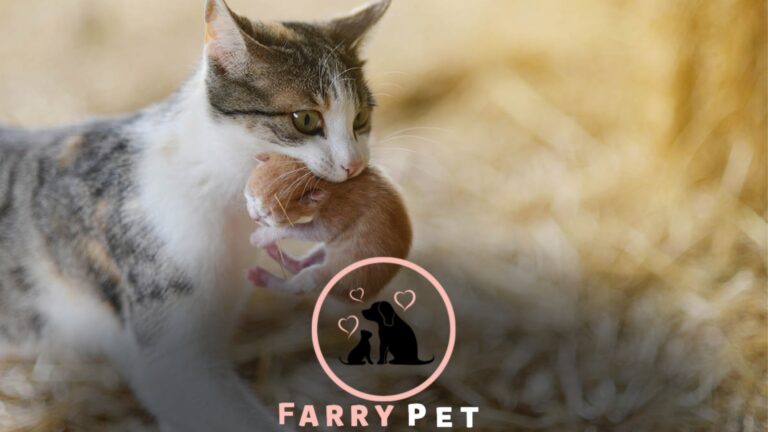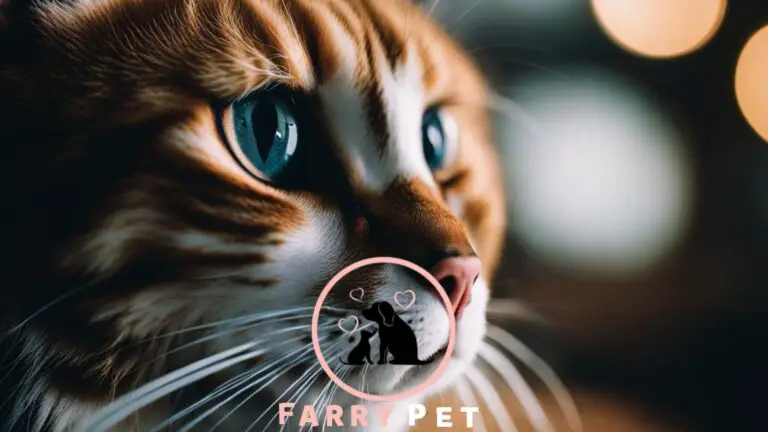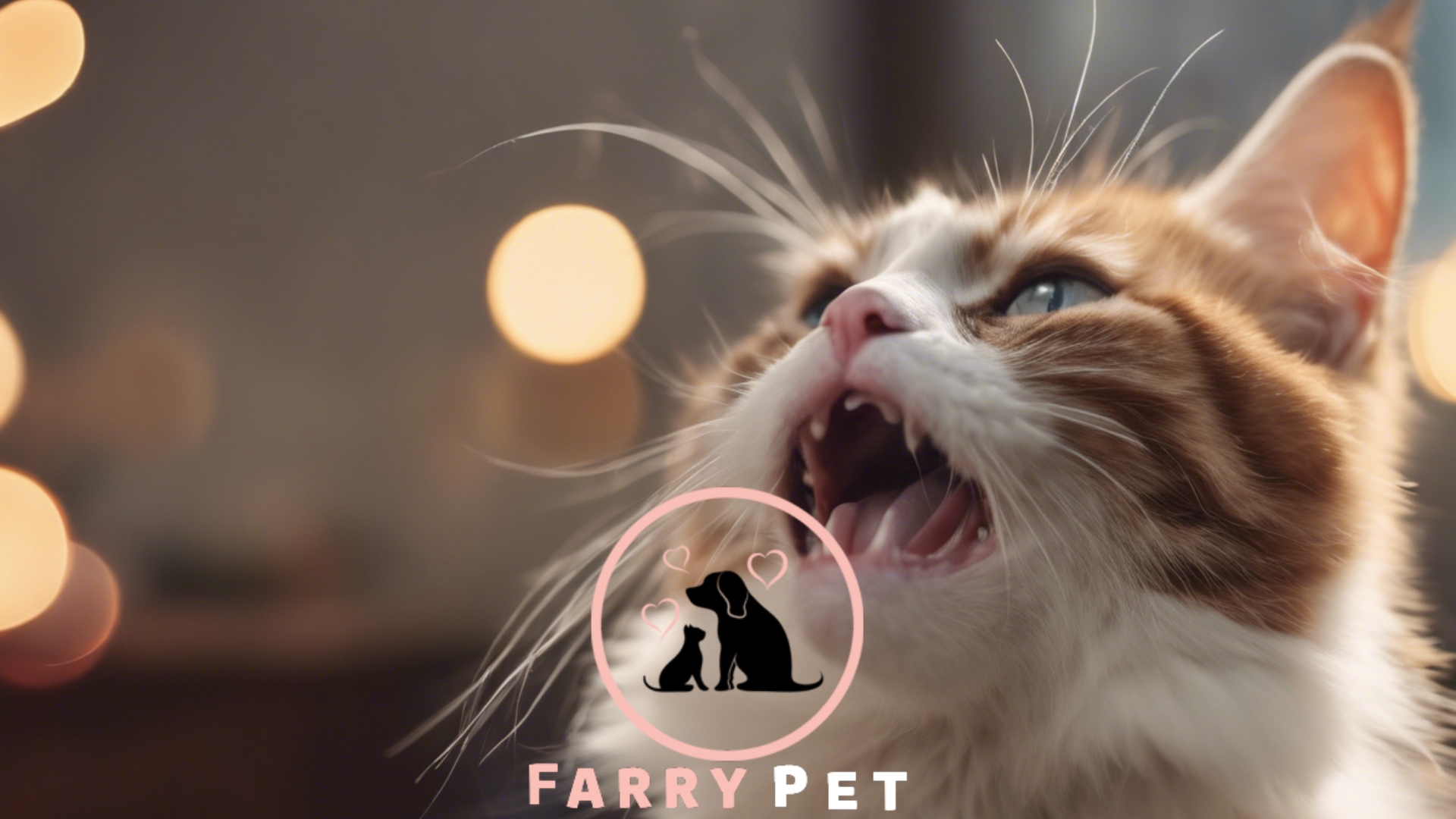
What to Do When Your Cat is Foaming at the Mouth? Cats are known for their grooming habits, but if you notice your feline companion foaming at the mouth, it can be a cause for concern.
Foaming at the mouth in cats is not a normal occurrence and may indicate an underlying health issue or an emergency.
In this article, we will explore the possible reasons behind your cat foaming at the mouth and provide you with a guide on what to do in such a situation.
What to Do When Your Cat is Foaming at the Mouth?
Causes of Foaming at the Mouth in Cats
1. Dental Issues
Dental problems such as gum disease, tooth abscesses, or oral tumors can lead to excessive salivation and foaming at the mouth in cats.
The discomfort caused by these issues may cause your cat to drool excessively, resulting in foam around the mouth.
2. Poisoning
Ingesting toxic substances, including certain plants, chemicals, medications, or household cleaners, can cause foaming in cats’ mouths. Poisoning can lead to various symptoms, including excessive drooling and foaming.
The safety of your furry friend is a top priority, and knowing what to do if a cat eats a wandering Jew plant can make all the difference in their well-being.
3. Allergic Reactions
Cats can develop allergies to certain foods, environmental factors, or medications. An allergic reaction can cause your cat’s body to produce excess saliva, resulting in foaming at the mouth.
4. Viral or Bacterial Infections
Some viral or bacterial infections, such as rabies or feline distemper, can cause excessive drooling and foaming at the mouth. These infections are serious and require immediate veterinary attention.
5. Trauma or Injury
If you’ve ever wondered, “What does it mean when a cat bites you hard?” it’s essential to understand that cat behavior can sometimes be puzzling.
What to Do When Your Cat is Foaming at the Mouth?
Injuries to the mouth, throat, or head can lead to foaming at the mouth in cats. Trauma may cause pain, inflammation, or damage to the salivary glands, resulting in excessive drooling and foam around the Immediate Actions to Take
If you observe your cat foaming at the mouth, acting promptly is important. Here are some immediate actions to take:
1. Assess the Situation
Evaluate your cat’s overall condition. Look for other symptoms like difficulty breathing, weakness, or seizures, which may indicate a more severe problem.
Assessing the situation can help you provide accurate information to the veterinarian.
2. Contact a Veterinarian
Contact your veterinarian immediately or an emergency veterinary clinic if your regular vet is unavailable. Describe the symptoms and follow their advice for further steps.
3. Provide Comfort and Reassurance
While waiting for professional assistance, provide your cat with a quiet and comfortable environment. Offer gentle reassurance and keep them away from potential dangers.
Home Care and Remedies
Depending on the underlying cause, your veterinarian may recommend specific home care or remedies. Here are some general guidelines:
1. Dental Care
Maintaining good oral hygiene is essential to prevent dental issues in cats. Regular brushing, dental check-ups, and providing appropriate chew toys can help reduce the risk of foaming caused by dental problems.
2. Preventing Poisoning
Ensure your cat’s environment is free from potential toxins. Store medications, chemicals, and cleaning products securely. Be cautious about plants that are toxic to cats and keep them out of reach.
3. Managing Allergies
Identifying and avoiding allergens that trigger your cat’s allergic reactions is crucial. Your veterinarian may recommend hypoallergenic diets, medications, or environmental changes to manage allergies effectively.
4. Boosting the Immune System
A strong immune system can help prevent various health issues in cats. A balanced diet, regular exercise, and vaccinations can support your cat’s well-being.
5. First Aid for Injuries
If your cat has experienced trauma or injury, it’s essential to handle them with care. Contact your veterinarian immediately for guidance on providing first aid and safely transporting your cat to the clinic. Click here for First Aid for cats.
When to Seek Veterinary Assistance

While home care may be sufficient for minor cases, certain situations require immediate veterinary assistance.
Here are some signs indicating the need for professional help:
1. Persistent Symptoms
If your cat’s foaming at the mouth persists for an extended period or recurs frequently, it’s essential to consult a veterinarian. Chronic issues may require a more thorough examination and treatment plan.
2. Worsening Condition
If your cat’s condition worsens or new symptoms arise, it’s crucial to seek veterinary assistance promptly. Rapid deterioration may indicate a severe underlying problem.
When dealing with feline hygiene issues, like the need for a cat diaper, you might be surprised to learn how resourceful you can be by making a cat diaper out of a sock.
3. Signs of Distress
If your cat displays signs of distress, such as difficulty breathing, pale gums, weakness, or loss of consciousness, it’s a medical emergency. Seek immediate veterinary care without delay.
Conclusion: What to Do When Your Cat is Foaming at the Mouth!!
Foaming at the mouth in cats is not a symptom to be taken lightly. It can indicate various health issues, ranging from dental problems to more severe conditions like poisoning or infections.
Acting promptly, contacting a veterinarian, and providing appropriate care are vital to ensuring your cat’s well-being.
FAQs
Can stress or anxiety cause a cat to foam at the mouth?
Stress and anxiety can cause excessive drooling in cats, but foaming at the mouth is not typically associated with these emotions. It’s best to consult a veterinarian to determine the underlying cause.
Should I try to clean the foam around my cat’s mouth?
It’s generally not recommended to clean the foam around your cat’s mouth unless instructed by a veterinarian. Focus on providing a safe and calm environment while waiting for professional guidance.
Is foaming at the mouth always an emergency?
Foaming at the mouth can be a symptom of minor issues and emergencies. If your cat shows signs of distress, has difficulty breathing, or the condition worsens rapidly, it’s crucial to seek immediate veterinary assistance.
Can I give my cat over-the-counter medications for foaming at the mouth?
Administering any medication to your cat without veterinary guidance can be dangerous. It’s essential to consult a veterinarian to determine the underlying cause and appropriate treatment.
How can I prevent dental issues in my cat?
Regular dental care, including brushing your cat’s teeth, providing appropriate chew toys, and scheduling dental check-ups, can help prevent dental issues. Consult your veterinarian for specific recommendations based on your cat’s needs.

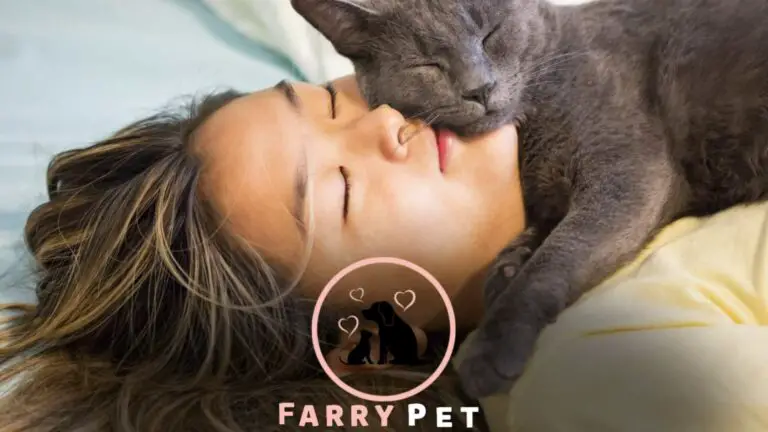
![How to Dilute Chicken Broth for Cats? [Meow-Worthy Cuisine]](https://farrypet.com/wp-content/uploads/2023/09/How-to-Dilute-Chicken-Broth-for-Cats-768x432.jpg)
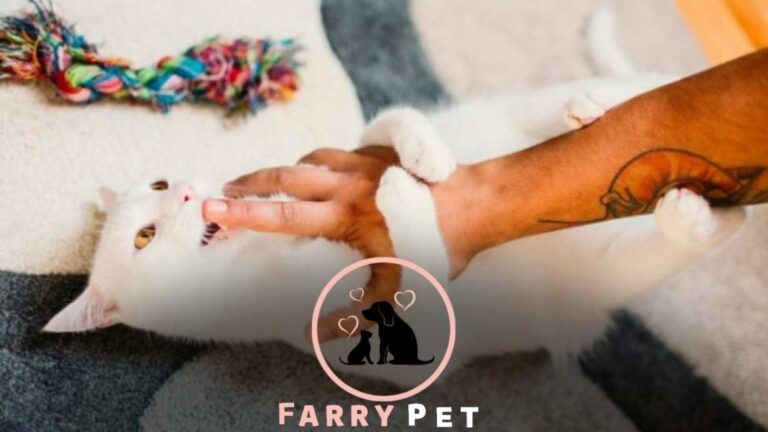
![Why Are My Cat’s Paws Peeling? [Actual Reason]](https://farrypet.com/wp-content/uploads/2023/08/Why-are-My-CatS-Paws-Peeling-768x432.jpg)
